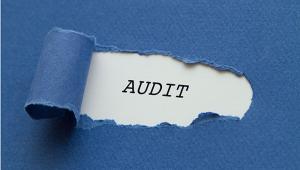Audit Committees are a key part of governance arrangements and can make a real difference to the way public services are run. They provide an independent, high-level resource supporting strong public financial management and governance.
With this in mind, CIPFA recently published updated guidance on Audit Committees in Local Government and Police Bodies that included a position statement on the role of audit committees in the sector. This article outlines the key elements of that position statement.
The primary purpose of an audit committee is to provide to those charged with governance independent assurance on the adequacy of the risk management framework, the internal control environment and the integrity of the financial reporting and annual governance processes.
In a number of local authorities the audit committee is seen as part of the overall governance arrangements and may be delegated some governance functions. Within police bodies, the audit committee must remain an advisory function to the police and crime commissioner and chief constable.
The core functions of an audit committee are to:
• Be satisfied that assurance statements, including the annual governance statement, properly reflect the risk environment and any actions required to improve it
• Oversee the independence, objectivity, performance and professionalism of internal audit functions
• Consider the effectiveness of risk management arrangements and the control environment
• Monitor the effectiveness of the control environment, including arrangements for ensuring value for money and managing exposure to the risks of fraud and corruption
• Consider the reports and recommendations of external audit and inspection agencies and their implications for governance, risk management or control
• Support effective relationships between external audit and internal audit, inspection agencies and other relevant bodies
• Review the financial statements, external auditor’s opinion and reports to members, and monitor management responses to the issues raised by external audit
Audit committees may also support the body by considering governance, risk or control matters at the request of other committees or statutory officers; working with local standards committees to support ethical values and reviewing the arrangements to achieve those values; and reviewing and monitoring treasury management arrangements.
Although the role and form of audit committees may vary, all should act as the principal non-executive advisor supporting those charged with governance and, in local authorities, be independent of both the executive and scrutiny functions. In police bodies they should be independent of the executive or operational responsibilities of the police and crime commissioner or chief constable. To carry out its role the committee needs clear rights of access to other committees and functions, for example scrutiny and service committees, corporate risk management boards and other strategic groups. The audit committee must also be properly accountable to the authority’s board or equivalent.
Effective audit committees should meet at least four times a year, and will involve as regular attendees key personnel from the body itself. It is important that the audit committee is seen to be effective in its own governance and they should report regularly on their work and at least annually report an assessment of their performance.
Good audit committees are characterised by:
• A membership that is balanced, objective, independent of mind, knowledgeable and properly trained to fulfil their role
• A membership that is supportive of good governance principles and their practical application towards the achievement of organisational objectives
• A strong, independently minded chair
• Unbiased attitudes – treating auditors, the executive and management fairly
• The ability to challenge the executive and senior managers when required
Most importantly, good audit committees make a real difference to the effectiveness of the governance arrangements in their public bodies. At a time of ever increasing pressures on the public finances this is crucial.
Alison Scott is assistant policy and technical director at CIPFA
This feature was first published in the March edition of Public Finance magazine




















